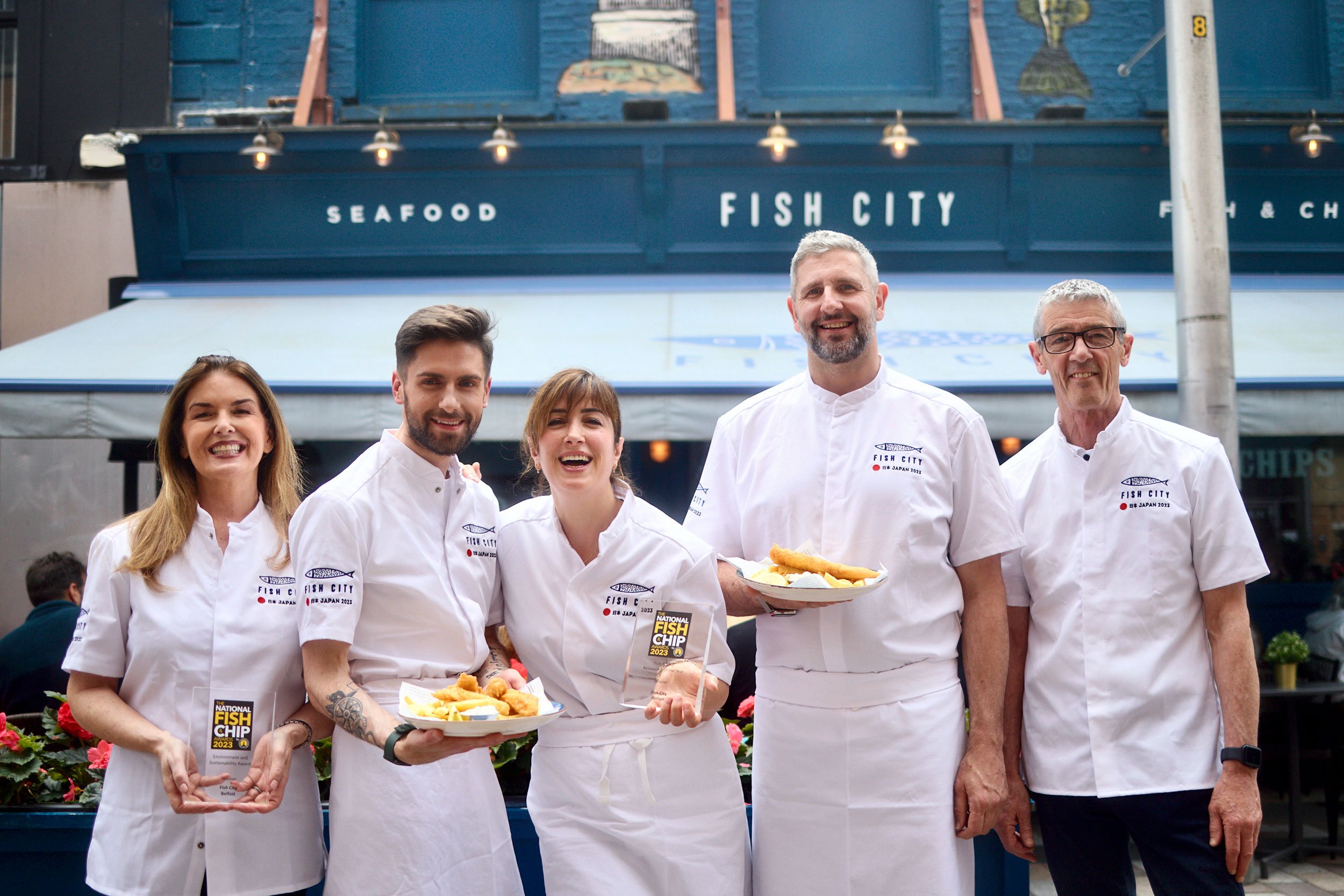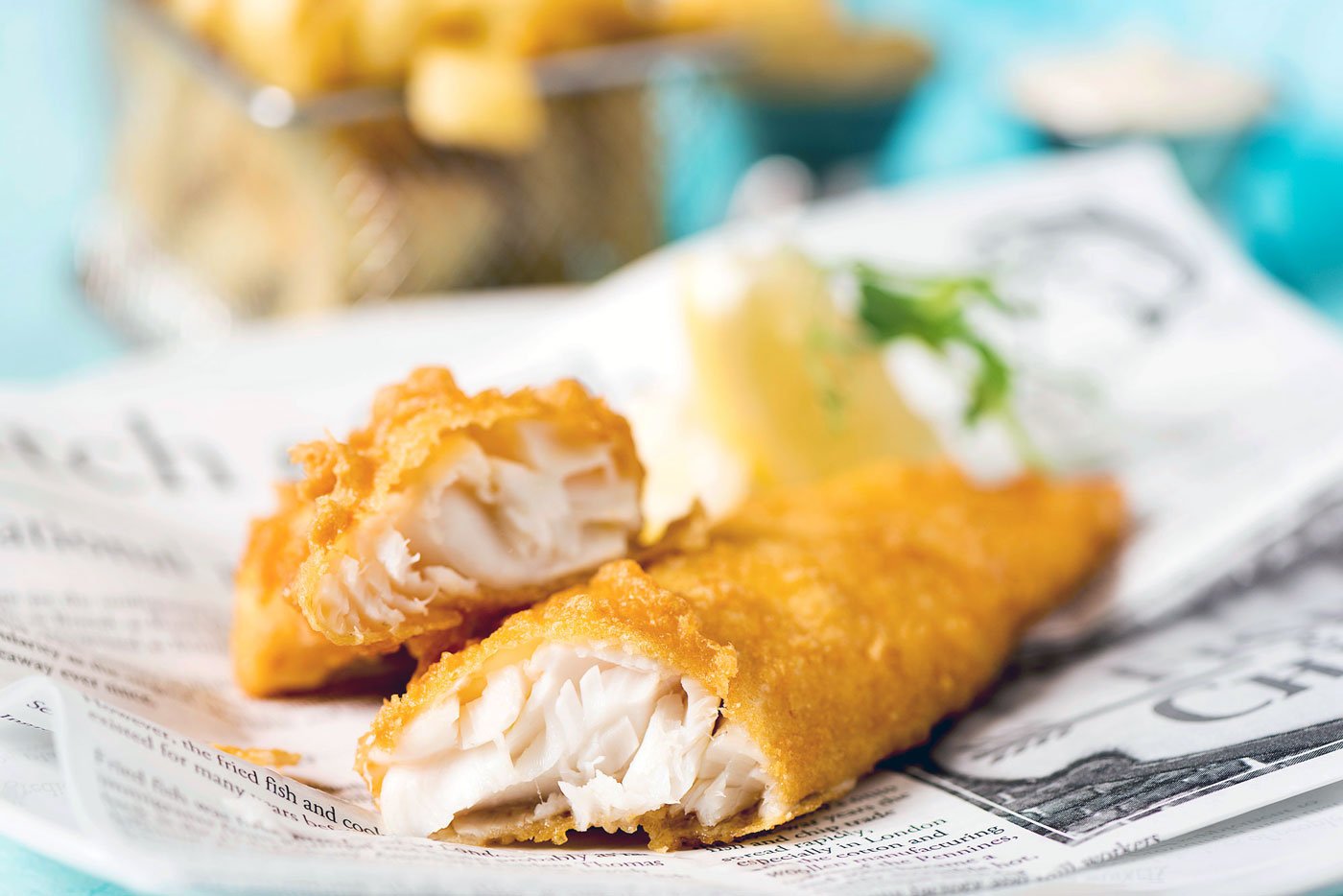Expert Eye: John Lavery, owner of Fish City, Belfast
Fry Magazine / By Helen Edmonds / 20 October 2025
The industry can’t compete with a £6 ready-made meal, says John, who believes there’s a new layer of competition facing fish and chip shops
Over the past decade, the world around us has undergone significant changes, and so has the fish and chip industry. The competition we face today isn’t just from the shop down the road anymore. It’s coming from supermarket shelves and convenience stores, where ready meal aisles have quadrupled in size. They’re cheap, quick and, for many families, they’re now the default choice. That’s a new layer of competition that simply didn’t exist in the same way five or ten years ago.
The traditional fish and chip shop was once a staple in people’s weekly routines. Now, it’s more of a treat, something families might do once a month instead of every Friday. I understand why: people are under immense financial pressure as disposable income is down, and a ready-made meal is cheaper than a takeaway. But as a business, our costs are rising at every turn: fish prices, energy, packaging, wages, you name it. We’ve tried to absorb as much as possible, but the margins are being squeezed so tightly, it’s becoming unsustainable.
VAT is a huge issue. We are taxed at 20%, whereas the ready-made meal offerings are for the most part taxed at 0%, so it’s not a level playing field at all. If the government rebalanced VAT, cutting ours by 10% and adding 5% to supermarket ready meals, it would make the market fairer, and it could help raise some of the £30 billion the government says is missing. But I don’t think that will happen as it wouldn’t be popular with the public.
We also need to acknowledge that society has changed. Fewer people are cooking from scratch. Families are time-poor, with both parents working. Kids aren’t learning how to cook at home, so naturally, demand for convenience continues to rise. Ready-made meals are filling that gap, where once it was the food-to-go sector, and they’re doing it cheaply.
But the fish and chip industry can’t compete with a £6 supermarket fish supper nor any other ready-made meal offering when a shop might need to charge £12 to £14 just to stay afloat. And it’s not because operators are greedy, it’s because of the chargeable VAT and inflationary pressures on ingredients, utilities and staff, which affect small independent shops more severely than the large companies that mass producing these products. Every increase in cost hits us harder.
It’s creating a dangerous environment, too. We are seeing an increasing number of operators advertising cash-only payments. I’m sure it’s not how many want to run their businesses, but they feel backed into a corner. At the same time, honest operators trying to do things by the book are being punished by a system that no longer works in their favour.
What worries me most is that even the best operators are struggling. We often hear, “the good ones will survive,” but I’m not so sure anymore. The pressures on good operators are as great because, as other businesses fight or try to retain market share by reducing their margins to bring customers through the door, this puts pressure on the good operators who feel they have to compete on pricing.
The only way we can face this future is together, by supporting our industry and lobbying government for fairer taxation, and by adapting to a new reality where fish and chips is seen by the public as a luxury item and not a necessity anymore.

